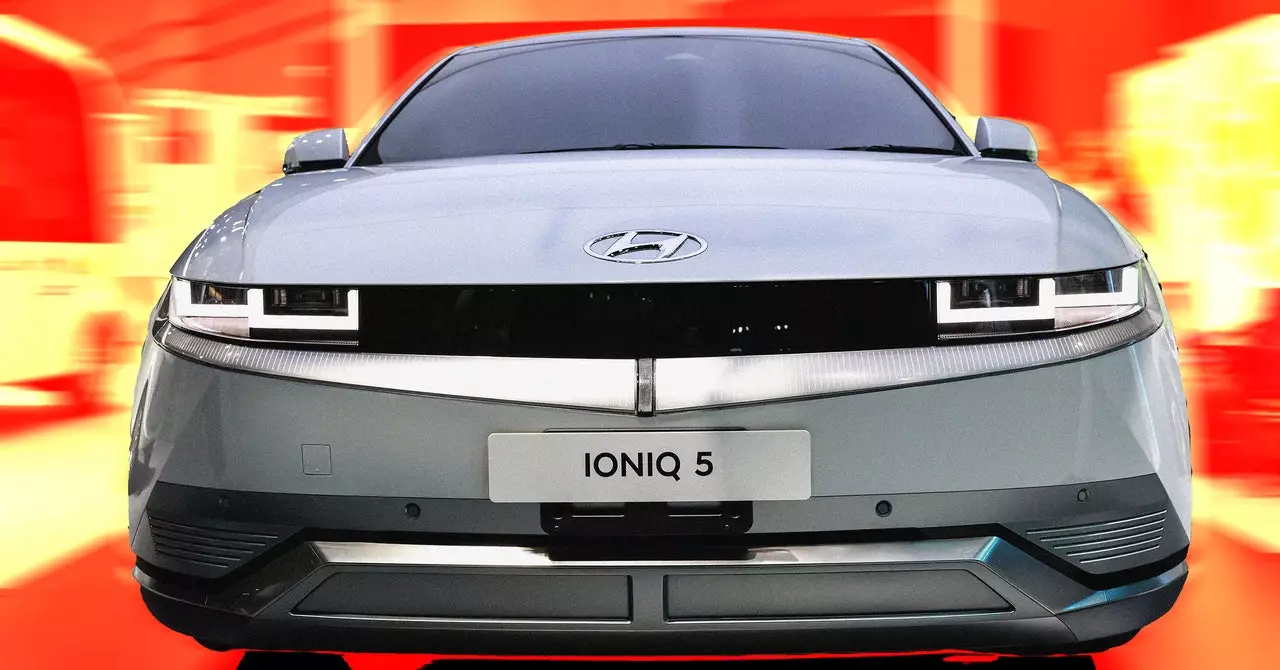The intersection of technology and automotive innovation is witnessing a significant shift, highlighting the emergent potential of self-driving vehicles. A prominent development in this sphere is Waymo’s recent announcement regarding its collaboration with Hyundai Motor Company. This partnership aims to integrate Waymo’s advanced self-driving technology into a new fleet of modified Hyundai Ioniq 5 electric vehicles, which are slated for deployment in late 2025 as part of Waymo’s ride-hailing services. This initiative signals not merely an incremental advancement in autonomous driving but potentially a fundamental transformation of how consumers view and utilize personal and shared transportation.
Waymo, heralded as one of the frontrunners in autonomous driving technology, is poised to reshape the future landscape of mobility through this partnership. Hyundai’s willingness to integrate targeted self-driving technology into its vehicles highlights a pivotal moment in the automotive industry, where traditional manufacturing meets cutting-edge innovation. Jose Munoz, president and COO of Hyundai Motor Company, refers to this agreement as a “first step,” indicative of deeper exploratory opportunities between the two firms that may extend beyond ride-hailing services to include consumer vehicles.
The choice of the Ioniq 5 for this venture is not arbitrary. This electric model embodies Hyundai’s dedication to sustainability and forward-thinking design. By marrying their electric prowess with Waymo’s self-driving capabilities, both entities aim to create a cohesion that enhances usability, efficiency, and consumer acceptance of autonomous technologies.
However, this collaboration comes amidst a backdrop of a rapidly changing global automotive landscape, particularly with the rise of China as a manufacturing superpower. Concerns regarding unfair trade advantages and national security have prompted Western countries—especially the United States and the European Union—to tighten regulations surrounding Chinese-made automotive technologies. Recent actions, such as increased tariffs and prohibitive measures against certain Chinese imports, indicate a concerted effort to safeguard domestic industries.
Waymo is navigating this turbulent environment with pragmatic strategy. Despite external pressures, their partnership with Zeekr—owned by Chinese automotive giant Geely—remains intact. This strategic alliance aims to leverage the unique strengths of Zeekr in producing affordable, autonomous vehicles while simultaneously addressing security concerns by ensuring that the core software technology is developed and controlled within the U.S. Waymo’s spokesperson underscored that their technology is installed only by U.S. personnel and highlights the autonomy of their operations, fortifying their narrative of a secure, American-centric approach to innovation.
The issue of security cannot be overstated. U.S. officials have voiced concerns that the incorporation of foreign technology in domestic vehicles could present vulnerabilities. US Commerce Secretary Gina Raimondo previously articulated the potential risks of Chinese-manufactured vehicles being remotely controlled from abroad, provoking fears of widespread system failures. By clearly stating that their vehicles designed by Zeekr lack built-in automation, Waymo is attempting to delineate its operations from the broader apprehensions regarding foreign technology.
Furthermore, the regulatory environment surrounding autonomous vehicles and foreign partnerships continues to evolve. As policymakers grapple with the implications of international collaborations in technology, companies like Waymo must remain agile in adapting to legislative changes while fostering innovation.
The collaboration between Waymo and Hyundai symbolizes a beacon of progress in autonomous mobility, striving to marry the capabilities of electric vehicles with the marvels of self-driving technology. As they embark on this journey, both firms are not only shaping the future of transportation but also addressing the intricate challenges that come with rapid technological evolution. By navigating the dual specter of innovation and security, they exemplify how the automotive industry can adapt to the demands of a globalized, technology-driven marketplace. As we look ahead, the successful implementation of this partnership could redefine consumer experiences, setting benchmarks for safety, efficiency, and overall quality in the realm of autonomous vehicles.

